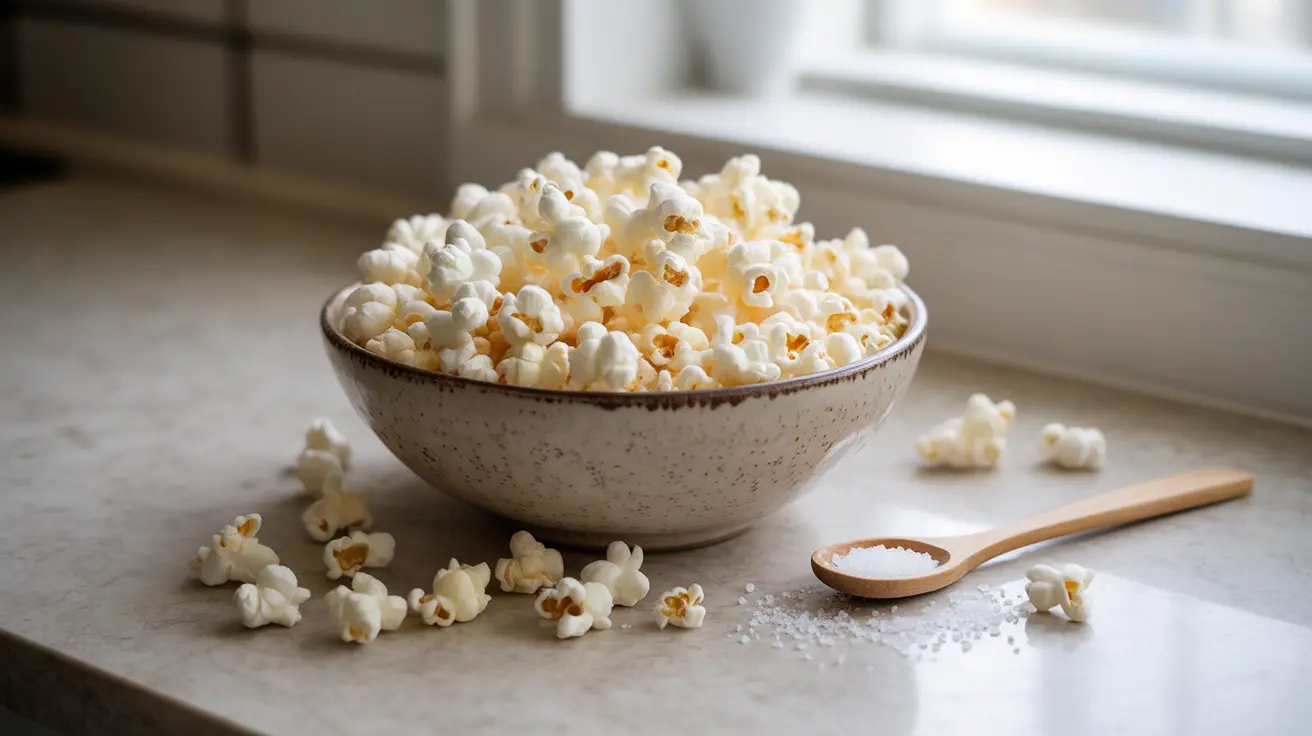When it comes to popular snacks, popcorn often stands out as a seemingly healthy option. However, many people wonder whether popcorn is considered a processed food and how different preparation methods affect its nutritional value. Understanding the processing levels of various popcorn types can help you make more informed choices about this beloved snack.
Understanding Popcorn Processing Levels
Popcorn starts as a natural whole grain, but the level of processing can vary significantly depending on how it's prepared and packaged. At its most basic, popcorn kernels are simply dried corn kernels that have been removed from the cob - this form is minimally processed and maintains most of its natural nutritional benefits.
Minimally Processed Popcorn Options
The least processed form of popcorn is plain, whole kernels that you pop yourself. These kernels undergo minimal processing, primarily involving cleaning and packaging. When prepared properly, they retain their natural fiber content and beneficial nutrients.
- Plain, unpopped kernels
- Air-popped popcorn
- Stovetop-popped popcorn with minimal oil
Health Concerns with Highly Processed Popcorn
While basic popcorn can be a healthy snack choice, heavily processed varieties often contain concerning additives and artificial ingredients that can impact your health.
Microwave Popcorn Concerns
Microwave popcorn represents one of the most heavily processed forms of this snack. Many brands contain potentially harmful chemicals in their packaging and flavoring agents:
- PFAS in bag linings
- Artificial butter flavorings
- High levels of sodium and artificial additives
- Added preservatives
Nutritional Comparison: Air-Popped vs. Pre-Packaged
Air-popped popcorn offers significant nutritional advantages over its pre-packaged counterparts. A serving of air-popped popcorn contains fewer calories, less fat, and no artificial additives while providing essential fiber and whole grain benefits.
Benefits of Air-Popped Popcorn
When prepared without added oils or butter, air-popped popcorn offers several health benefits:
- High in fiber
- Low in calories
- Rich in antioxidants
- Good source of whole grains
Making Healthier Popcorn at Home
Creating your own popcorn at home allows you to control ingredients and avoid unnecessary processing. Here are some healthy preparation methods:
- Use an air popper
- Pop on the stovetop with minimal oil
- Season with natural ingredients like herbs and spices
Frequently Asked Questions
Is popcorn considered a processed food, and what types of popcorn are the least processed?
Plain popcorn kernels are minimally processed, essentially just being dried and removed from the cob. Air-popped or stovetop-popped plain kernels are the least processed forms of popcorn. However, microwave popcorn and flavored varieties are highly processed with additional ingredients and chemicals.
What are the health risks of eating microwave popcorn and other flavored popcorn snacks?
Microwave popcorn can contain harmful chemicals in the bag lining (PFAS), artificial butter flavoring compounds, excess sodium, and unhealthy oils. Regular consumption of heavily processed popcorn products may contribute to increased sodium intake and exposure to potentially harmful artificial additives.
Are there any additives or chemicals in processed popcorn that I should avoid for better health?
Yes, watch out for artificial butter flavoring, excess sodium, hydrogenated oils, and PFAS in packaging. Also be mindful of artificial preservatives, colors, and flavoring agents commonly found in pre-packaged popcorn products.
How does air-popped popcorn compare to pre-packaged popcorn for nutrition and health benefits?
Air-popped popcorn is significantly healthier than pre-packaged versions. It contains fewer calories, no artificial additives, and provides natural fiber and antioxidants. Pre-packaged varieties often contain added fats, sodium, and artificial ingredients that reduce their nutritional value.
What are some healthier snack alternatives to processed popcorn, and how can I make popcorn at home to control ingredients?
To make healthier popcorn at home, use an air popper or stovetop method with minimal oil. Season with herbs, spices, or a small amount of olive oil. Alternative healthy snacks include raw nuts, fresh fruit, roasted chickpeas, or homemade kale chips. When making popcorn, avoid artificial butter flavorings and excess salt.




